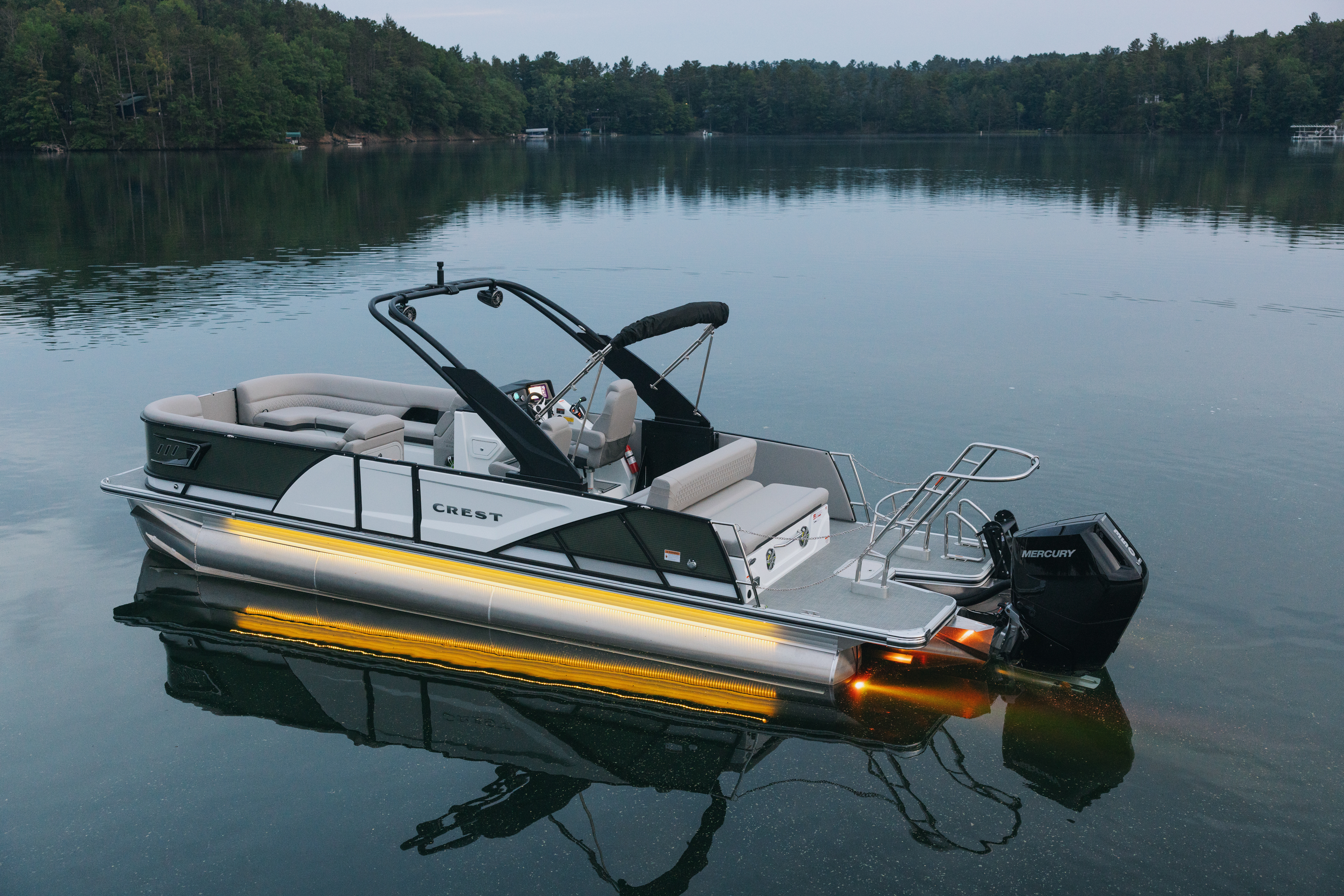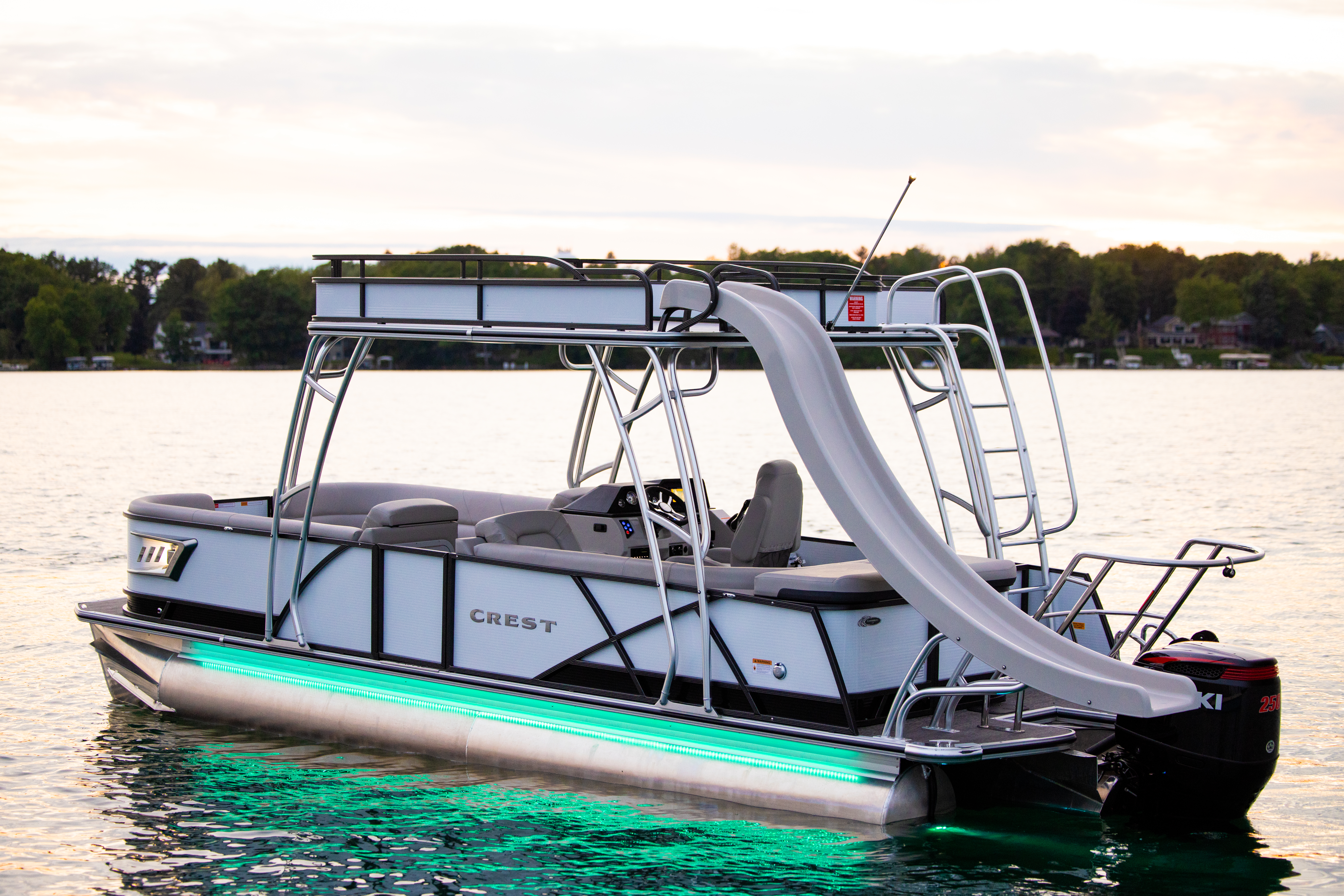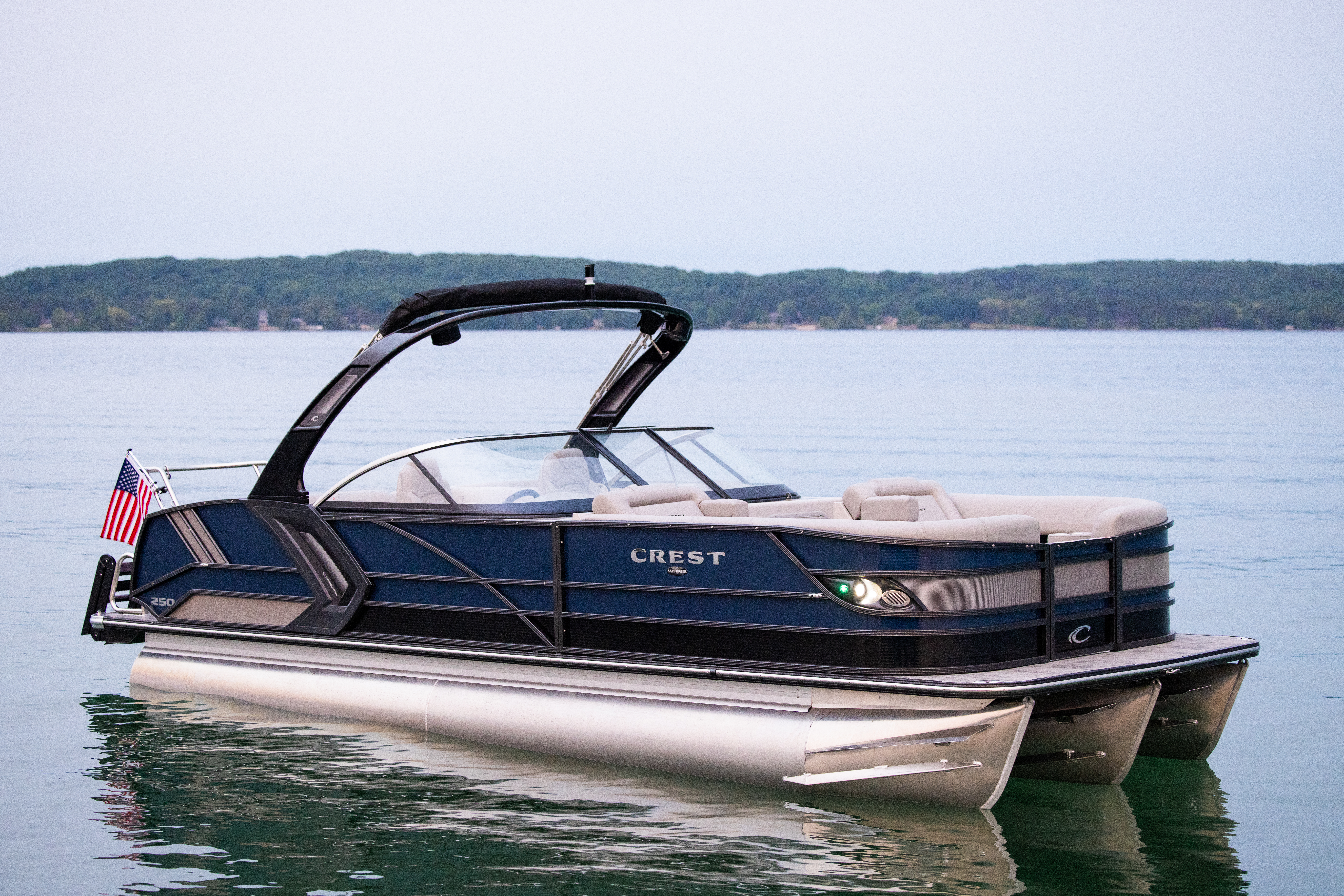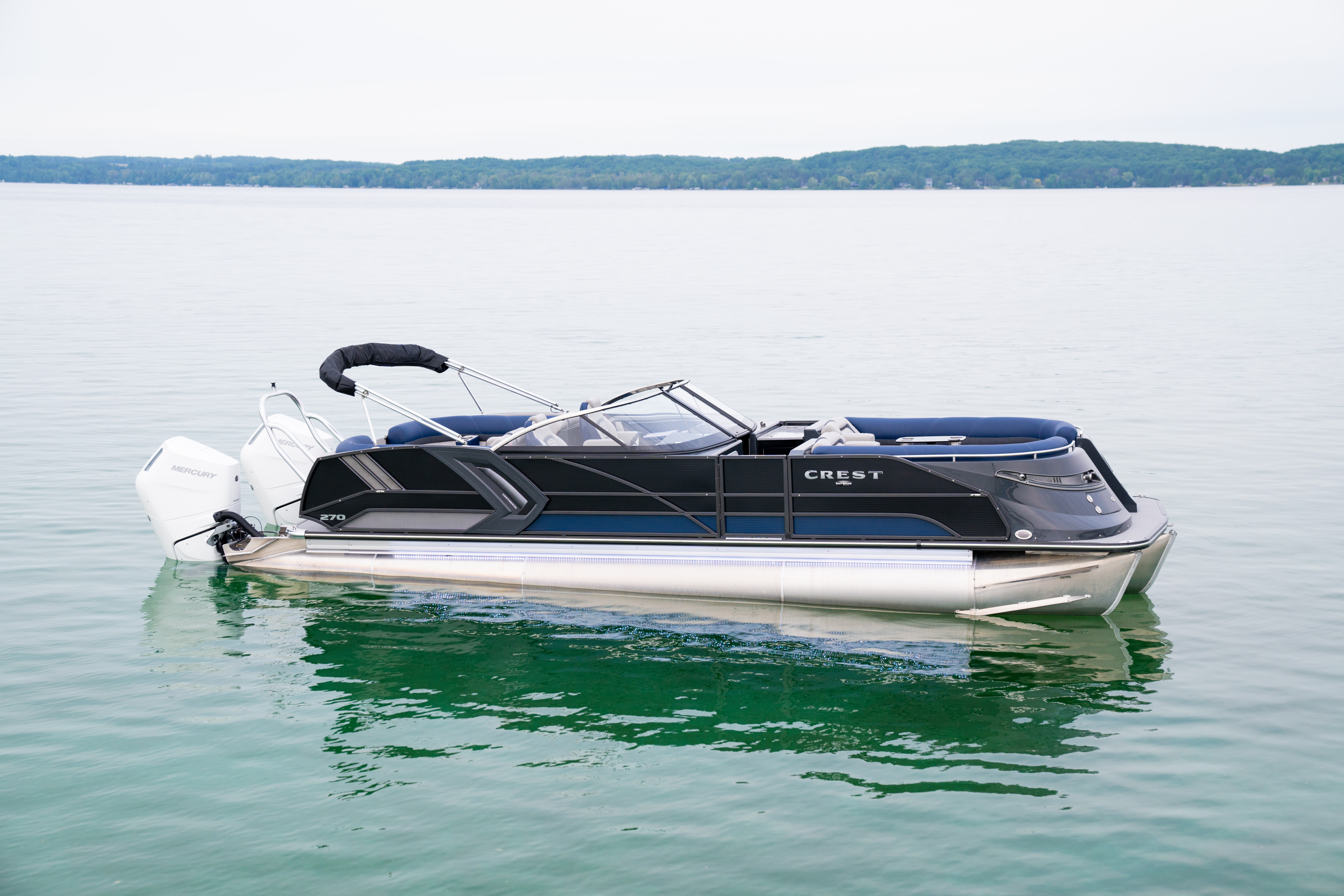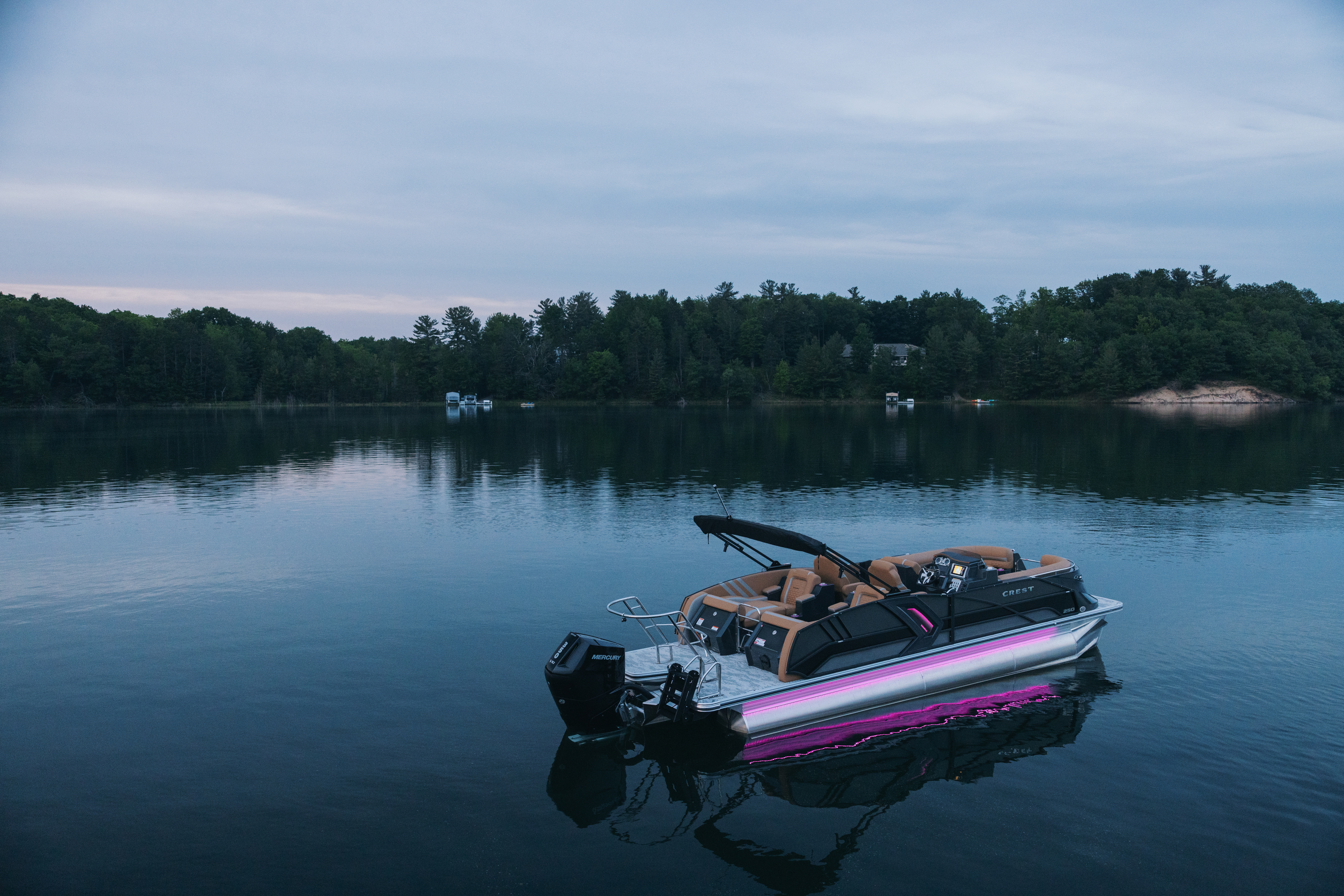Common Boating Mistakes
By: Crest Pontoon Boats on Thursday, August 24, 2023
It’s important to have fun while out on the water in your Crest pontoon, but it’s even more important to be safe. Here are some of the top boating mistakes to try your best to avoid.
Failing to Check the Marine Weather Forecast
It’s extremely important to check the weather before you head out, but not using just any weather app. Make sure you’re looking at a marine app so you are aware of winds and sea conditions, not just overhead weather.
Running Aground
Running aground is all too common and can cause varying degrees of damage depending on where you are. On a soft mud or sandy bottom, you may get stuck but not incur much damage. In a rocky harbor, hitting the bottom can do major damage. The key is to always be aware of where you are and what the local underwater hazards may be. If you’re ever in doubt, slow down!
Forgetting to Keep Up With Regular Maintenance
Every mode of transportation needs to be kept up with and a boat is no different. Be sure to create a schedule and stick to it so your Crest pontoon stays in top working order.
Hitting the Dock
This one is all too common. When you’re preparing to dock, be sure to slow down—this isn’t like parking a car. Even when you’re doing everything right, a sudden power loss or mechanical problem can cause you to lose control and hit the dock. Just a bit of research and practice can do a lot for your confidence when docking your Crest pontoon.
Running Out of Gas
This mistake is a common one. A few things to remember—fuel consumption and your boat’s range can be affected by factors like load and sea conditions. In addition, fuel gauges on boats are often not as reliable as those found in automobiles and the readings can change as fuel moves around in the tank. What’s a good rule of thumb to follow? Use one third fuel capacity going out, use one third coming back, and save one third in reserve.
Forgetting to Put in the Drain Plug
This one is rather self explanatory—make sure you put the drain plug in before you load your boat in the water!
Overloading the Boat
It’s very important to make sure you know your boat's capacity. Once you do, make sure you’re keeping track of the weight of people and gear when loading your boat. This miscalculation can be a dangerous one.
Getting Lost
Thanks to modern technology, boaters don’t get lost as often as they used to, but it can still happen. Make sure you know where you're going and how to get home. It’s also important to make sure you have the sufficient navigation tools on board via your boat’s system or your phone.
Putting Out Insufficient Anchor Line
This may seem like an easy task, and it is, but it's also easy to get wrong. It’s important to know that if you don’t let out enough line to match about three times the depth of where you are, the anchor may easily pull free. Being familiar with your boat and the area helps to avoid running into this issue.
Running the Engine While Dry
Most marine engines require a supply of water for cooling purposes. The water cools the engine and lubricates the water pump impeller, which is common in most marine propulsion systems. If you run a boat motor while it’s out of the water, it can overheat, damage the impeller, or both.

